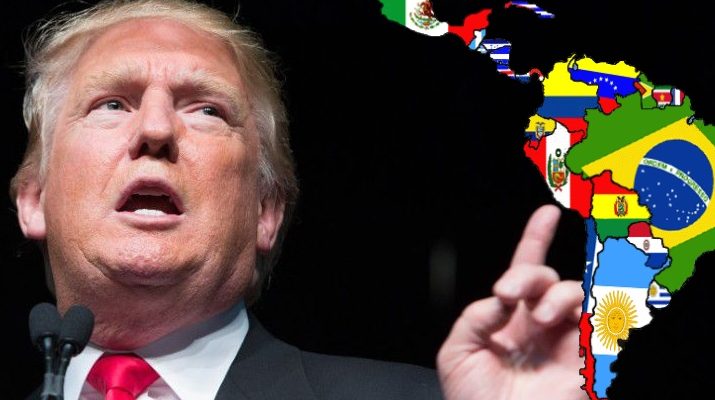Trump’s trade agenda may help the Latin American economy


Almost every statement from Trump has made clear that he isn’t keen on continuing regional economic treaties. Instead, he looks for one-on-one agreements with big economies (the U.K., Australia and Japan have been mentioned). If Trump follows through with his protectionist agenda, trade with Latin America will be one of the first to suffer. However, it could also lead to an unexpected Latin American integration.
It’s still unclear if Donald Trump will go through with his trade agenda. Aside from withdrawing from the Trans-Pacific Partnership (TPP), he hasn’t put IGNORE INTO action the other three proposals: renegotiate NAFTA, label China as a currency manipulator and identify all foreign trade abuses. Despite Trump’s indecision, it is clear that he won’t go the other way and openly promote free trade. In the best case, he will remain inactive, jeopardizing improvement in Latin American development.
So, one way or another, it’s better for Latin America to start strengthening its internal relations and leaving behind old differences. Although Latin American politicians and people themselves seem to have a welcoming attitude towards each other, the reality is that they’ve struggled to integrate. At first sight, the obstacles for the integration lay on historical baggage, corruption and economic interests beyond the region. The first and second one have pushed some countries towards a silent protectionism. The third obstacle means that countries prefer to expand their markets to big and thriving economies such as China, Europe and the U.S.
If the U.S. –one of those appealing foreign economies– starts to back down on trading relations, wouldn’t it be smart to work on agreements such as Mercosur and the Pacific Alliance? That, certainly, would be the ideal situation, since it’d create an economic block with promising possibilities.
Now, what if political, cultural and historical differences come in the way of this ideal? As we’ve noticed, the dependency on the U.S. would prevail. And even worst, Latin American countries would try to adapt to the whims of a bipolar government. Felipe de la Balze, analyst for the Argentinian news media Clarín, has already stated that the best behavior for Argentina would be to focus their efforts on making itself more appealing for the U.S.
Wouldn’t they be barking at the wrong tree?
Whether Trump keeps his promises or not, Latin America is better off with a more independent economy. Sure, it can rely on world powers –the economic climate indicates that China is willing to take that role– but it can’t run away from its own unity and stability.





